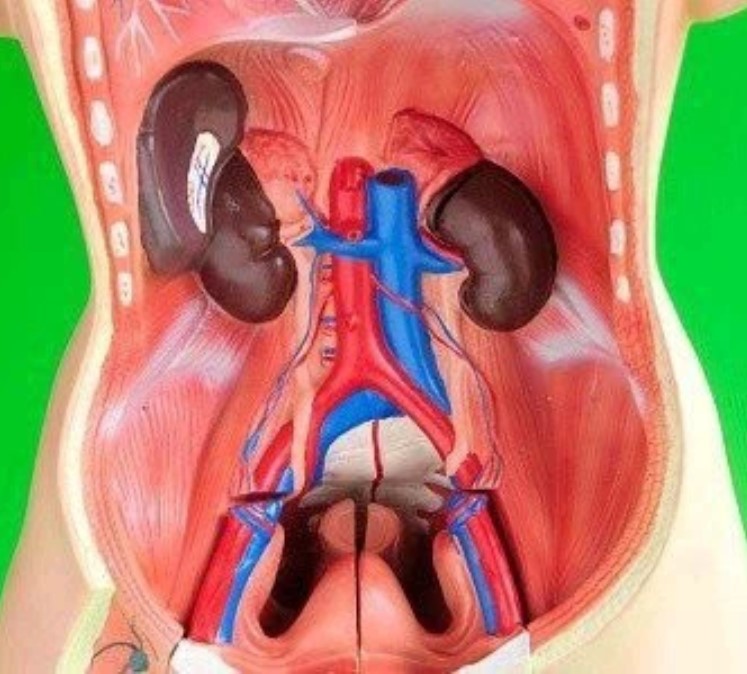That bunch of bananas sitting in your fruit bowl might be causing you unnecessary anxiety if you’re managing diabetes. You’ve probably heard conflicting advice about whether these convenient yellow fruits are friend or foe to your blood sugar levels. Some sources treat them like nature’s candy bars—sweet bombs to be avoided at all costs—while others praise their nutritional benefits regardless of your glucose concerns.
The confusion is understandable. Bananas are undeniably sweet and soft-textured, qualities we typically associate with foods that spike blood sugar. But is their reputation as a diabetic danger deserved, or is there more to the story than their sugar content? The answer might not be as straightforward as you think, and understanding the nuances could add a versatile food back to your menu…Click Here To Continue Reading>> …Click Here To Continue Reading>>
The sugar situation isn’t what you think
Yes, bananas contain sugar—that’s undeniable. But the type of sugar and how it’s packaged makes all the difference. Unlike the refined sugars found in processed foods, the natural sugars in bananas come bundled with fiber, particularly in less ripe fruits.
This fiber acts like a built-in speed bump for digestion, slowing down how quickly the sugar enters your bloodstream. While a candy bar dumps its sugar load all at once, creating a dramatic spike, a banana delivers its sweetness more gradually, resulting in a gentler rise in blood glucose.
What’s even more interesting is that the body processes fruit sugar differently than refined sugar. Fructose, the primary sugar in fruits, can be metabolized without insulin involvement—primarily in the liver where it’s converted to glucose for energy. This alternative metabolic pathway means fruit sugars typically cause less dramatic insulin demand than an equivalent amount of table sugar.
The ripeness factor changes everything
Not all bananas affect your blood sugar the same way, and the yellow-to-brown spectrum of ripeness is your visual guide to their glycemic impact. That spotty, ultra-sweet banana has a very different effect on your body than its greener, firmer counterpart.
As bananas ripen, their starch content transforms into simple sugars, making them both sweeter and potentially more impactful on blood sugar. Simultaneously, their fiber content decreases—a double-whammy for blood glucose management. A 100-gram serving of unripe bananas contains about 18 grams of fiber, while the same amount of fully ripened banana has only 4-5 grams.
This means that choosing slightly underripe bananas—those that are yellow with a hint of green and still have some firmness—gives you more fiber with less sugar. The difference isn’t insignificant; it can substantially change how your glucose levels respond to eating this fruit.
The portion perspective
Size matters when it comes to bananas and diabetes management. Those massive bananas at the supermarket can be twice the size of what dietary guidelines consider a serving, effectively doubling the carbohydrate impact without you realizing it.
A reasonable serving for someone with diabetes is half a medium-sized banana, which provides approximately 15 grams of carbohydrates. This portion allows you to enjoy the nutritional benefits without overwhelming your blood sugar management.
Timing this portion strategically throughout the day rather than consuming a whole banana at once can further mitigate any potential glucose spikes. This approach lets you enjoy the taste and benefits while maintaining better control over your blood sugar levels.
The nutrition beyond the sugar
Focusing solely on the sugar content of bananas misses the bigger nutritional picture. These fruits deliver an impressive array of nutrients that benefit overall health, including some that are particularly relevant for people with diabetes.
Potassium, abundant in bananas, plays a crucial role in maintaining proper insulin function and helps counteract the sodium-retaining effect of insulin. This mineral also supports heart health—important considering the increased cardiovascular risks associated with diabetes.
Vitamin B6, another banana standout, is involved in more than 100 enzyme reactions in the body, including some related to glucose metabolism. The vitamin C and various antioxidants in bananas help combat oxidative stress, which is typically elevated in people with diabetes. READ FULL STORY HERE>>>CLICK HERE TO CONTINUE READING>>>
Perhaps most importantly, the fiber in bananas feeds beneficial gut bacteria, potentially improving insulin sensitivity over time. This prebiotic effect supports metabolic health in ways that extend beyond immediate blood sugar impact.
The pairing power play
How you eat your banana matters almost as much as which banana you choose. Eating this fruit alone on an empty stomach will have a different effect than incorporating it as part of a balanced meal or snack.
Pairing banana with protein or healthy fats creates a nutritional team that slows digestion and moderates blood sugar response. Some effective combinations include banana with greek yogurt, a handful of nuts, or a tablespoon of almond butter.
This pairing strategy doesn’t just benefit blood sugar management—it also creates more satisfying snacks that keep hunger at bay longer, potentially helping with weight management, which is often an important factor in diabetes care.
The personalized approach
The most important thing to understand about bananas and diabetes is that individual responses vary significantly. Factors like your specific type of diabetes, how well it’s currently controlled, your medication regimen, and even your unique gut microbiome composition can all influence how your body responds to this fruit.
This variability means that personal testing is invaluable. Using a glucose monitor to check your levels before eating a banana and again two hours later can provide concrete data about how your body specifically responds. This information is far more valuable than general guidelines because it’s personalized to your unique physiology.
Some diabetics may find they can enjoy a whole medium banana with minimal blood sugar impact, while others might need to limit themselves to a smaller portion or pair it more carefully with other foods. This personalized approach empowers you to make informed decisions rather than relying on one-size-fits-all rules.
The practical integration strategies
If you want to incorporate bananas into your diabetes-friendly diet, several practical strategies can help maximize benefits while minimizing blood sugar concerns.
Choose bananas that are yellow with slight green tips for the optimal balance of flavor and fiber. Fully green bananas can be difficult to digest, while overly ripe ones have more sugar and less fiber.
Consider using banana in ways that naturally limit portion size, such as slicing half a banana onto oatmeal or yogurt rather than eating it whole as a standalone snack.
Freeze ripe bananas to use in smoothies, where you can control the portion size precisely and easily blend with protein sources like unsweetened greek yogurt or a plant-based protein powder.
Remember that physical activity affects how your body processes carbohydrates. Having a small piece of banana shortly before or after exercise may be better tolerated than eating it during sedentary periods.
Track your personal response not just in terms of blood glucose but also energy levels, satisfaction, and how the food fits into your overall nutritional goals. This holistic approach recognizes that diabetes management extends beyond just glucose numbers.
Bananas don’t deserve their bad reputation in the diabetes community. When eaten mindfully—with attention to ripeness, portion size, food pairings, and personal response—they can be part of a nutritious and satisfying diet for most people with diabetes. Their convenience, versatility, and nutritional profile make them worth understanding rather than automatically avoiding based on oversimplified rules about fruit sugar.
The next time you pass the produce section, consider giving bananas another chance. Your body might thank you for the potassium, fiber, and other nutrients packed into this portable, affordable fruit—as long as you enjoy it with knowledge and awareness of how it fits into your unique diabetes management plan.




















